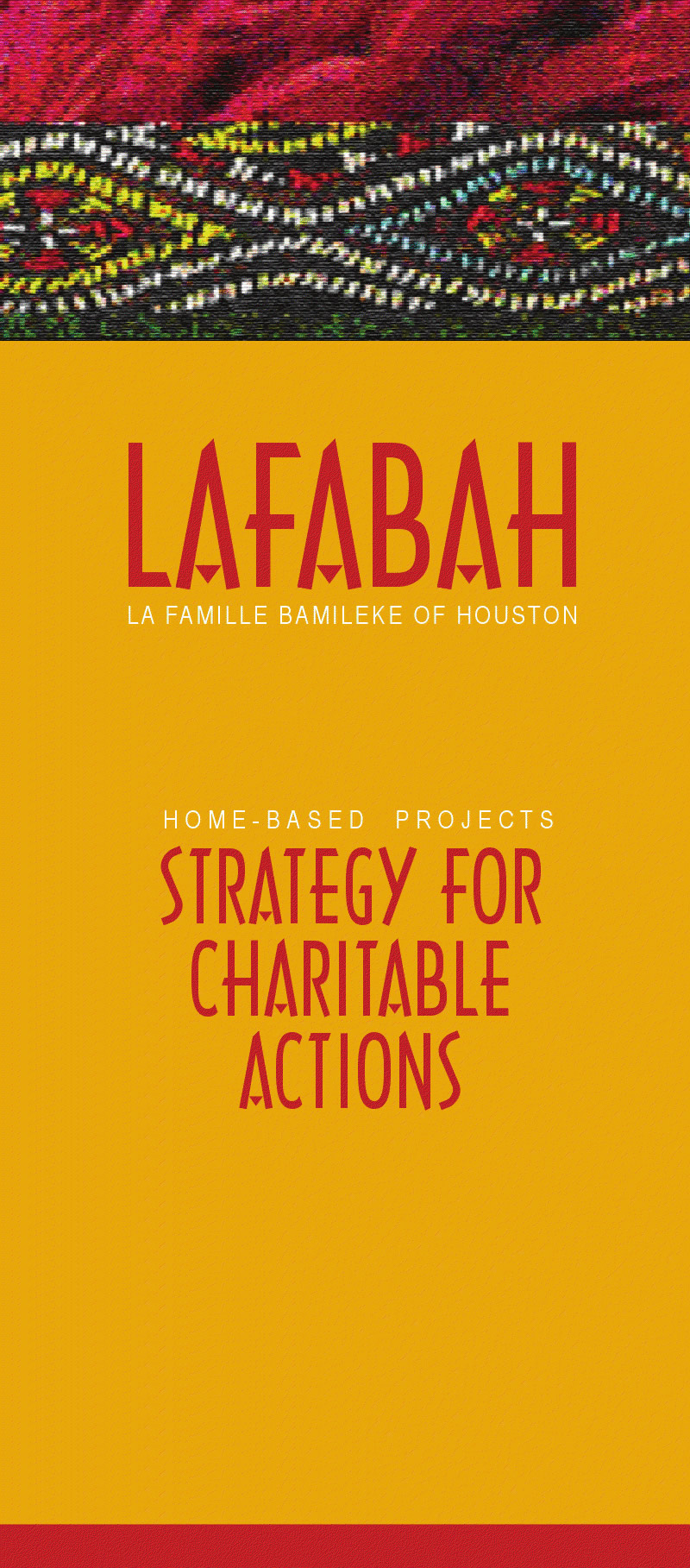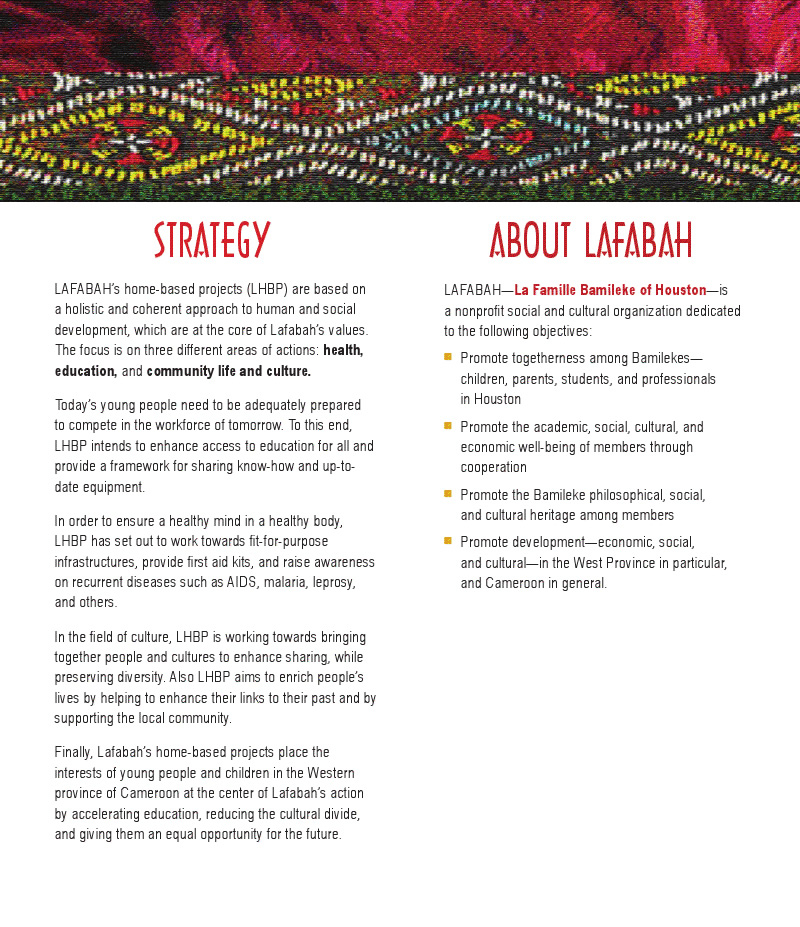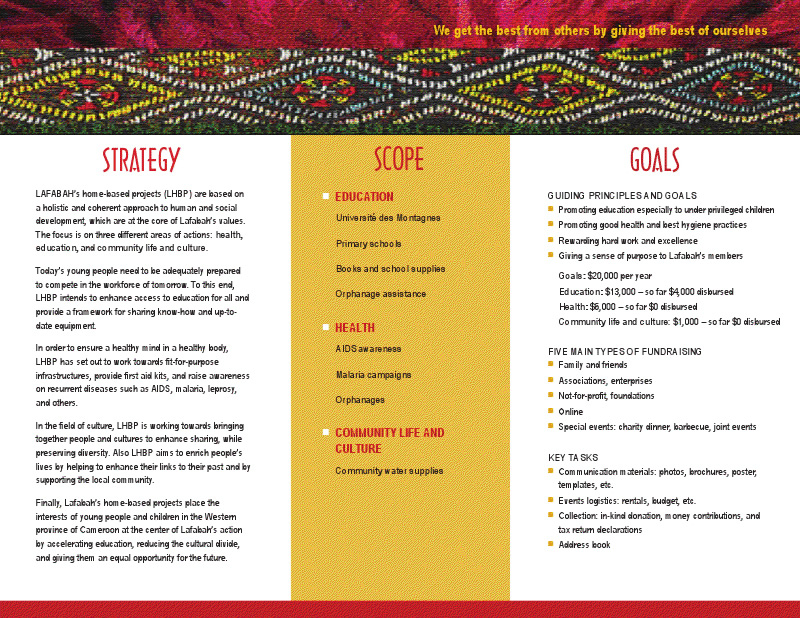OUR OBJECTIVES
LAFABAH is a non-profit social and cultural organization dedicated to the following objectives:
- Promote development (educational, economic, social and cultural) in Cameroon and in the Houston Metropolitan area.
- Promote the welfare of Bamiléké living in the Houston metropolitan area.
- Promote the Bamiléké philosophical, social and cultural heritage among members.
OUR HISTORY
On the July 04 weekend of 1988, a small group of Houston residents who describe themselves as Bamilekes, descendants with roots in the Western Province of Cameroon, converged at the home of John and Marie Njowo. The atmosphere was relaxed as those present joked and laughed about their early experiences in this USA. Many found the experiences at once funny and frightening, as they exposed our vulnerability in a culture in which we were rootless. The central task for this meeting, promoted by Pius Tomdio, was therefore a simple one that made profound sense: develop new roots that would keep us firmly connected to our ancestral homeland, in a bid to retain our traditions and, consequently, our identities, in our new world.
Those present at the meeting – Brother Raphael Njowo, John and Marie Njowo, Grace Njilo, Tomdio Pius, Robert Fangtang, Nelson Ngassa, Emmanuel Samson, Janet Samson, Dorothy Sampson, and others – agreed that a cultural association would be the ideal vehicle to transmit elements of our Bamileke culture, such as beliefs, language, dance, and folklore, providing a dire link to our past as we strove to develop our potential. This idea was promptly crystallized in the formation of La Famille Bamileke de Houston (LAFABAH), a cultural grouping of all Bamilekes in, and around, Houston . LAFABAH was launched at the end of the year, in a December coming-out party chaired by big brother Raphael Njowo.
LAFABAH set for itself the very lofty goal of being a dependable family that would always be there for its members when all else failed. This reassuring vision has since permeated and informed every activity of the association. That vision sought to encourage members to take advantage of their new environment without ditching their ancestral ways. Mentorship was a highlight foundational initiative that taught new members how to leverage their Bamileke traditional values in navigating their new home. Financial assistance was the second leg of the groundwork. It aimed to keep needy members in school and in their apartments, underlining the desire to help members succeed in this very tough environment. The third and even more significant leg of that base was the shared moments of celebration or comfort LAFABAH provided for its members in joyous times like the birth of a child, or sad times like the death of a loved one. During such periods, the LAFABAH group support, buttressed in Bamileke traditional values, kept our focus.
In its over-two-decade life, LAFABAH has seen an explosive growth in membership. Today, the very vibrant younger generation of members is implementing many resourceful updates to bring the association up to the 21st century. One such improvement to the association’s objectives is a stepped-up effort to provide assistance to the needy back in Cameroon. The mandatory home-based project now constitutes a fourth leg that guides our efforts. The elasticity of the four-legged foundational base has accounted for the amazing stability of LAFABAH as it has evolved - a testament to the farsightedness of the founders and recent leaders.
By John N. Njowo
|
|




